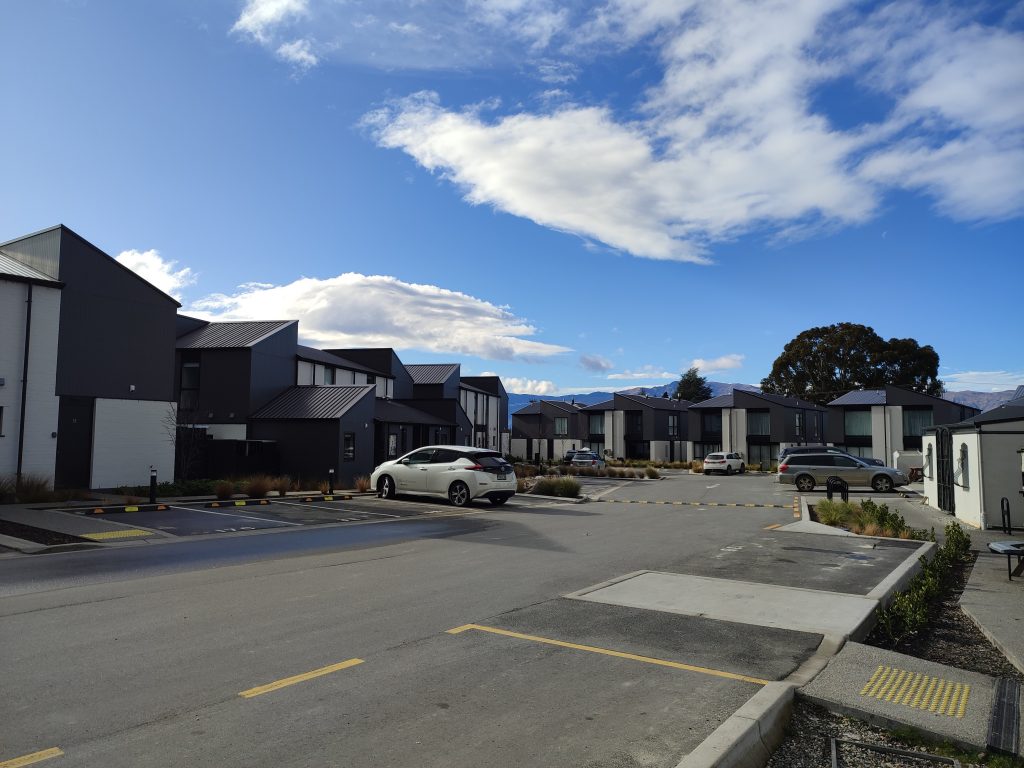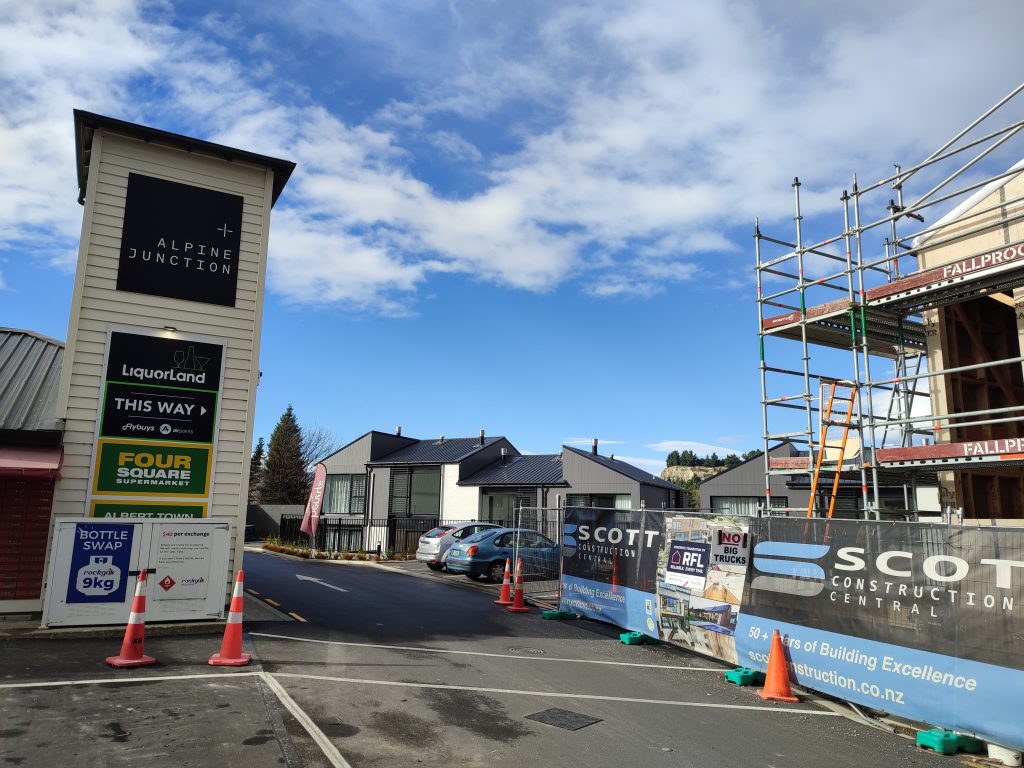Property owners are at loggerheads with the developer of an Albert Town subdivision after issues with the buildings emerged and the society intended to serve their growing community has floundered.
Located in Alison Ave, just a few metres from the banks of the Clutha River, Riverside Residences is a 62-townhouse complex developed primarily by Multiplied Investment Partners, a company managed by Wanaka developer Matt Tuck.
Property owners, who asked not to be identified, said the issues began shortly after settlement last year.
Chief among their concerns were temperatures in first-floor bedrooms reaching 37°C in spring and summer.

‘‘I feel like there should be some law around making bedrooms sleepable to some degree,’’ one owner said.
‘‘When it’s 20° outside it shouldn’t be 40° inside.’’
The owners also expressed frustration with changes or omissions made from the original plan, which included a switch from cedar cladding to a black composite, as well as a lack of louvres, underfloor heating and low-e glass windows.
In emailed correspondence Mr Tuck informed owners that all changes made during the building process were permitted under the sale and purchase agreement and that he would negotiate with owners individually on any items missing from the final build.
Some owners felt the solutions Mr Tuck offered did not go far enough, but were at a loss about how to proceed.
‘‘I feel like there’s more protection for a purchaser of a can of beans than a housing development,’’ one said.

A Ministry of Business, Innovation and Employment (MBIE) spokesman said there were no building code requirements aimed at safeguarding people from high air temperatures, but added other consumer protections were built into law.
‘‘If consumers believe they have been misled or treated unfairly, and that this conduct is in breach of the Fair Trading Act, they may wish to lodge a complaint with the Commerce Commission.’’
The spokesman said the Building Act 2004 also provided consumers with a 12-month defect liability period and a 10-year implied warranty period, allowing them to get redress from builders for building defects.
University of Otago faculty of law senior lecturer Dr Simon Connell said the contract between a developer and a buyer was important as it could often account for what should happen in the event the developer could not complete the build exactly as planned.
‘‘The sale of property is one of those areas where there’s still a bit of caveat emptor, buyer beware going on,’’ he said.
‘‘If the developer didn’t promise anything about the temperatures, then it can be difficult for the buyer to argue that there’s any breach of any obligation on the part of the developer if it turns out that the rooms do get hot.’’

The owners also expressed concern about the management of the development’s incorporated society, which has not had a meeting since its creation in March last year.
Without an elected committee, Mr Tuck has managed Riverside Residences Society Incorporated as a ‘‘caretaker’’, a role that one owner argued was not laid out within the society’s rules.
Mr Tuck has so far declined requests by owners to hold a meeting, stating that one would not be held until owners on the third and final stage of the development had also had the opportunity to become members of the society.
Dr Connell said although society members could ‘‘in theory’’ challenge a society if they felt it was not following its own rules, this was not a straightforward process.
‘‘That’s expensive and involves lawyers, which is why there’s been an amendment to the incorporated societies act to require more informal dispute resolution procedures,’’ he said.
The MBIE spokesman confirmed the Incorporated Societies Act 2022, which comes into force on October 5, would require incorporated societies to include dispute resolution procedures in their constitutions.
While the owners said they appreciated Mr Tuck’s desire to include every owner in the society’s decision-making process, they argued it was equally important for the existing community to collaborate and lay solid foundations for their future.
Mr Tuck did not respond to a request for comment.





